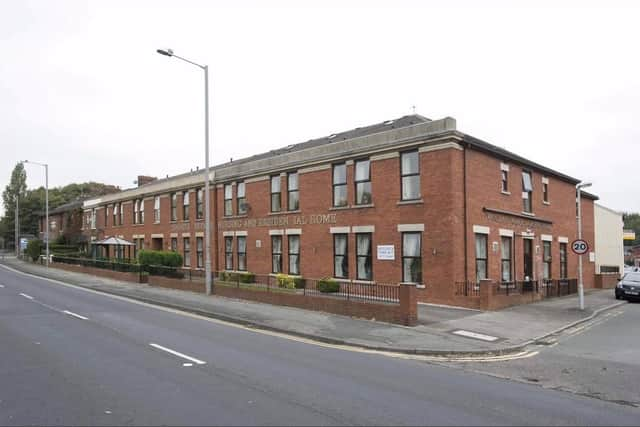Preston nursing home resident died on floor after alarm failed to alert staff
and live on Freeview channel 276
Diane Pettit was found unresponsive on the floor of her room at the Swansea Terrace home in Watery Lane, Preston when a nurse made a routine check late at night.
The 65-year-old was lying face down on a "crash mat" by her bed. But staff said a separate sensor mat linked to an alarm had failed to activate - the first time home manager Maria Lilley had ever known that to happen.
Advertisement
Hide AdAdvertisement
Hide AdAssistant Coroner Sara Sutherland concluded Mrs Pettit had died of natural causes after hearing she had aspirated food in her lungs and windpipe.


Home boss Mrs Lilley told the hearing in Preston that Mrs Pettit suffered, amongst other things, from cognitive impairment due to an acute brain injury. She also had type 2 diabetes.
She spent most of the time in her bed, although she would occasionally get up to sit in a chair and could shakily stand with help from staff.
At the side of her low bed was a crash mat which was there to prevent her injuring herself. There was also a sensor mat which triggered an alarm for staff if she tried to get out of bed or fell out.


Advertisement
Hide AdAdvertisement
Hide Ad"An alarm goes off and it's loud," said Mrs Lilley. "The maintenance staff check them once a week."
She said a member of staff tested Mrs Pettit's blood sugar level around 10pm and found it was in the normal range. But it was decided to give her two digestive biscuits and a glass of milk before she went to sleep so the level would be maintained during the night.
Around 1am a nurse found her face down on the crash mat. She was unresponsive.
"I'm told the sensor mat did not activate," said Mrs Lilley. "It was definitely plugged in. One of the carers tested it and it went off.


Advertisement
Hide AdAdvertisement
Hide Ad"I can't say I have ever come across cases where people have fallen out of bed and the sensor mat hasn't gone off.
"We have tested it and it works. We don't understand why it didn't work that night."
Mrs Pettit's husband David told the inquest he believed the sensor mat had been left unplugged.
"The number of times I've been there visiting my wife and the sensor mat was unplugged, because it went off every time you walked across it," he said.
Advertisement
Hide AdAdvertisement
Hide AdMrs Lilley said: "It was either unplugged or not placed properly. I can't think of any other reason why it wouldn't go off."
She added that the home had a new computerised system in place now, but it was only being installed and was not operational in January at the time Mrs Pettit died.
One of the home's GPs Dr Hari Nair explained that food aspiration - where stomach contents reflux and find their way into a patient's lungs and windpipe - could happen silently and quickly.
He said patients with neural problems could suddenly aspirate. "Minor aspirations can go unnoticed, but if the volume of food aspirated is larger then it will lead to problems straight away. It can happen from solids or liquids or a combination of both."